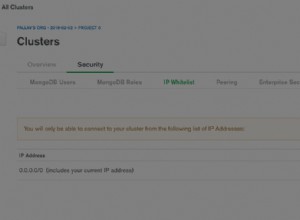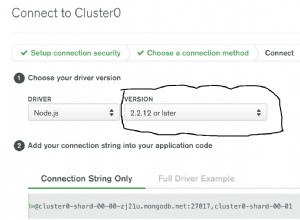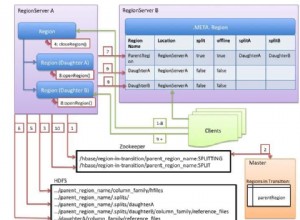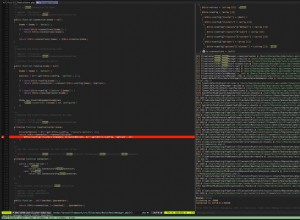Fare la maggior parte (e la parte più difficile) di quello che vuoi può essere fatto facilmente in MongoDB. Il passaggio finale quando si restituisce "base", "premium" o "standard" molto probabilmente può anche essere fatto, ma penso che non valga la pena perché è banale in Go.
In MongoDB usa il framework di aggregazione
per questo. Questo è disponibile in mgo pacchetto tramite Collection.Pipe()
metodo. Devi passargli una fetta, ogni elemento corrisponde a una fase di aggregazione. Leggi questa risposta per maggiori dettagli:Come ottenere un aggregato da una raccolta MongoDB
Torna al tuo esempio. Il tuo GetEventLevel() il metodo potrebbe essere implementato in questo modo:
func (dao *campaignDAO) GetEventLevel(eventID string) (string, error) {
c := sess.DB("").C("eventboosts") // sess represents a MongoDB Session
now := time.Now()
pipe := c.Pipe([]bson.M{
{
"$match": bson.M{
"_event_id": eventID, // Boost for the specific event
"is_published": true, // Boost is active
"start_date": bson.M{"$lt": now}, // now is between start and end
"end_date": bson.M{"$gt": now}, // now is between start and end
},
},
{
"$lookup": bson.M{
"from": "campaigns",
"localField": "_campaign_id",
"foreignField": "_id",
"as": "campaign",
},
},
{"$unwind": "$campaign"},
{
"$match": bson.M{
"campaign.is_published": true, // Attached campaign is active
},
},
})
var result []*EventBoost
if err := pipe.All(&result); err != nil {
return "", err
}
if len(result) == 0 {
return "standard", nil
}
return result[0].Level, nil
}
Se ti serve al massimo un solo EventBoost (o potrebbero non essercene più contemporaneamente), usa $limit fase per limitare i risultati a uno solo e utilizzare $project per recuperare solo il level campo e nient'altro.
Utilizzare questa pipeline per la semplificazione/ottimizzazione sopra menzionata:
pipe := c.Pipe([]bson.M{
{
"$match": bson.M{
"_event_id": eventID, // Boost for the specific event
"is_published": true, // Boost is active
"start_date": bson.M{"$lt": now}, // now is between start and end
"end_date": bson.M{"$gt": now}, // now is between start and end
},
},
{
"$lookup": bson.M{
"from": "campaigns",
"localField": "_campaign_id",
"foreignField": "_id",
"as": "campaign",
},
},
{"$unwind": "$campaign"},
{
"$match": bson.M{
"campaign.is_published": true, // Attached campaign is active
},
},
{"$limit": 1}, // Fetch at most 1 result
{
"$project": bson.M{
"_id": 0, // We don't even need the EventBoost's ID
"level": "$level", // We do need the level and nothing more
},
},
})




